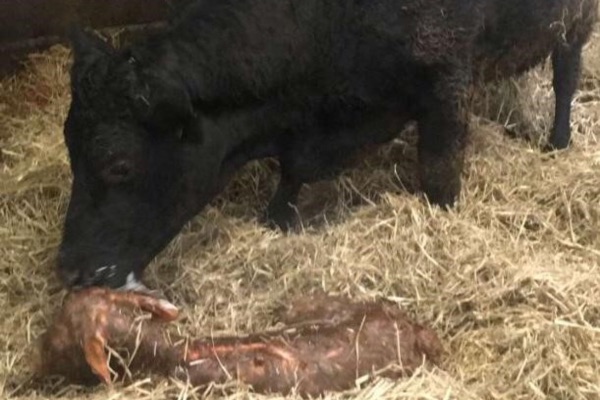Spring is a busy period on most beef and sheep farms, writes CAFRE’s, Nigel Gould.
As well as calving and lambing, the focus is also on preparing for turnout. Assess farm safety before starting the busy period and make appropriate changes to help keep yourself and others safe.
Machinery and slurry
Furthermore, check machinery and ensure all PTO shafts have guards in place. In particular, check guards on PTO shafts of slurry mixing and spreading equipment.
Do not leave opened tanks unattended. Be mindful of the risks of hydrogen sulphide gas when mixing slurry and do not mix tanks on a calm day.
Take all the cattle out of the shed before starting to mix and ensure someone is nearby to check on you while mixing takes place. The highest risk period is the first thirty minutes.
Spring on farms: Calving cows
The other main risk on suckler farms at this time of year are attacks from cows around calving time. A good calving gate is a necessity.
Never turn your back on a cow, and always have your escape route planned. As dogs and children can trigger aggression in cattle, restrict their access to freshly calved cows.
Having adequate facilities and avoiding a last-minute rush will reduce stress and the likelihood of farm accidents related to cows at calving time.
A general rule of thumb is to allow one calving pen for every ten cows. However, more will be required where a very compact calving is anticipated.
Every suckler farm should have a good calving gate, including a part that can be opened to allow the safe assistance of calves to suckle.
Essential items include:
- Calving aids/ropes;
- Iodine solution for navels;
- Arm length gloves;
- Calving lubricant;
- Disinfectant;
- Artificial/frozen colostrum;
- A stomach tube;
- feeding bottle.
Farm safety campaign
‘Stop and Think SAFE’ is a farm safety campaign the Farm Safety Partnership developed to address the high rate of farm-related injuries and fatalities in Northern Ireland.
The word ‘SAFE’ focuses on raising awareness of the four main causes of accidents on local farms; Slurry, Animals, Falls (from height) and Equipment.





